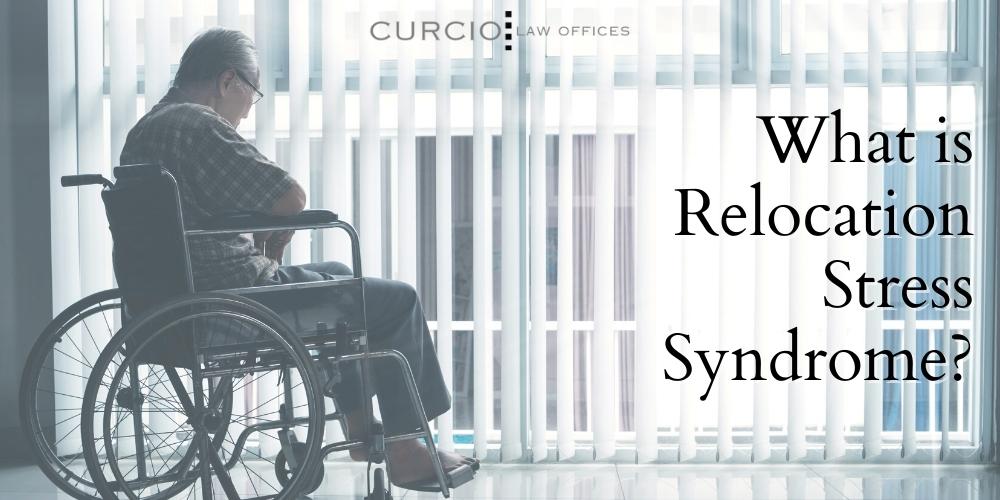When it comes to mental health, moving to a new environment is one of the most stressful things that someone can go through. Most people can find ways to cope with the stress so that their physiological well being does not suffer. Sometimes, though, the stress of moving can lead to significant health complications, especially for many older adults and children. The stress of moving can lead to a condition called Relocation Stress Syndrome (RSS). This syndrome is very common among seniors who are moving to a nursing home for the first time, or who are moving from one nursing home to another.
Because many older adults already have significant health problems, poor mental health in nursing homes can be enough to cut their lifespan short. Nursing home staff members must do everything in their power to promote health, happiness, and safety for residents. This means being attentive to new residents, making an accurate diagnosis of RSS, and treating their symptoms quickly. If nursing homes fail to do this, and the senior’s health dramatically deteriorates as a result, then family members can pursue legal action if they so choose.
Below, our legal team discusses the specifics of RSS: symptoms, risk factors, prevention tips, treatment, and information about suing for nursing home negligence. For more information, call a Chicago elder abuse lawyer at Curcio & Casciato at 312-321-1111 today.
What is Relocation Stress Syndrome?
Relocation stress syndrome (RSS), also frequently referred to as transfer trauma, is a mental health condition that anyone of any age can suffer from during a big move from one environment to another. RSS most commonly affects older adults who are moving from their home to a nursing home, or moving from nursing home to nursing home.
RSS can negatively impact both mental and physical health. Because many elderly people in senior living communities already struggle to stay mentally and physically well, the symptoms of RSS can cause them to decline even more, especially without proper support.
Relocation stress syndrome was first identified by nurses who watched the physiological well being of their residents suffer after moving to a new assisted living facility. In 1992, the mental health condition became an official diagnosis by the North American Nursing Diagnosis Association (NANDA).
Symptoms of Relocation Stress Syndrome
Relocation stress syndrome can cause significant health complications such as:
- Anxiety
- Panic attacks
- Depression and excessive crying
- Loneliness
- Hopelessness
- Anger and irritability
- Dependency
- Social withdrawal
- Insecurity
- Undereating or overeating
- Drastic weight changes
- Gastrointestinal problems (lack of appetite, nausea, vomiting, diarrhea, constipation, stomach pain, etc).
- Difficulty sleeping
- Falls
- Body aches
- Headaches
These symptoms are classic physiological stress symptoms, but they can easily be misdiagnosed as something else. This is especially the case for an older person in a nursing home, who likely already has a host of mental and physical health issues. That’s why it’s so important to choose a good nursing home for your elderly loved one if you’re learning how to put someone in a nursing home against their will. You want a nursing home that will be extremely attentive to your loved one’s physiological well being and that can make accurate diagnoses.

Risk Factors of Relocation Stress Syndrome
Some older adults are more prone to experiencing Relocation Stress Syndrome than others. If your elderly family member struggles with any of the following issues, they may have a higher risk of suffering with RSS.
- Alzheimer’s disease or dementia
- A history of mental health issues such as anxiety, depression, PTSD, panic attacks, etc.
- Mobility problems
- A history of trauma, such as suffering from nursing home abuse and neglect in the past
- Chronic physical health conditions
- Older people who have few friends, family members, and/or visitors
Additionally, women are more likely to suffer from RSS than men, although the condition can afflict anyone who is moving to a new environment.
Tips to Prevent Relocation Stress Syndrome
Moving is stressful for anyone, no matter the age. But for older adults, it’s especially important to prevent excess stress as much as possible. Listed below are some tips you can consider before moving day rolls around.
- Involve Your Elderly Loved One in Decisions: It’s very common for seniors to feel an increasing loss of control over their health and lives as they get older. At a certain point, their other family members begin making all their life decisions for them. Failing to ask your loved one for their input in something as big as a move can increase feelings of stress and powerlessness. Ask them what nursing home they like best. Ask them what items they want to take with them from their old home. Encourage their involvement in as many decisions as possible.
- Validate Their Feelings: Moving to a new location is stressful and emotional no matter who you are. An older adult may feel a lot of sadness and fear especially if they are moving to a long term care facility for the first time. Listen to and validate these feelings. Reassure them that you will do what you can to make them feel as comfortable and safe as possible in their new place.
- Hire Senior Moving Specialists: Did you know that you can hire professional movers specifically for nursing homes? It’s true. The National Association of Specialty and Senior Move Managers (NASMM) exists to help manage the stress of moving to a long term care facility. A senior move manager can help elderly people (and their families) downsize possessions and start packing ahead of time. This alone can help seniors feel more at ease about the moving process.
- Try to Recreate Their Old Home in Their New Home: Obviously, you can’t create an exact duplicate of their old home in their nursing home, but you can make sure they have several of their favorite items in their new personal space. Favorite blankets, pictures, and trinkets can help recreate their old comfort zone. You could even try to rearrange their room in a similar way as their old home.
How to Help Seniors Cope With Relocation Stress Syndrome
Treating Relocation Stress Syndrome is often a team effort between doctors and loved ones. Listed below are the best ways to help seniors cope with transfer trauma.
- Work With a Therapist and/or Psychologist: There should be no shame around going to therapy and being medicated for mental health conditions, especially during major life events like a move. If nursing home staff notice one or more symptoms of RSS, they should help the senior set up an appointment with a therapist. The therapist can help them talk through their emotions, give them coping mechanisms, and even refer them to a psychiatrist for medication.
- Creating a Daily Routine: Nursing home staff and family members can help the senior create a daily routine in their new home. Routine is often a crucial part of feeling safe, secure, and happy.
- Rest and Self Care: Moving is stressful, physically and emotionally. It’s important for seniors to prioritize rest and engage in enjoyable activities while they get settled into their new home.
- Visit Your Elderly Loved One Frequently: Visiting your loved one as frequently as possible at their new nursing home can help them feel less alone and depressed during this major life change.
- Encourage Seniors to Make New Friends: It’s nearly impossible to get through life stressors without a strong support system. Many older adults experience RSS because not only are they leaving their home, but they’re also leaving their friends and other family members. That’s why it’s so important for a family member to encourage them to expand their social circle in their new nursing home. Many nursing homes schedule daily and weekly social activities between the residents to keep their spirits up. Encourage your loved one to attend these events and meet new people.
Can You Sue for Relocation Stress Syndrome?
Because Relocation Stress Syndrome can cause significant physiological health deterioration and even premature death among seniors, it’s crucial for nursing homes to do everything they can to help them adjust. This means that nursing home staff should monitor new residents for RSS symptoms, make an accurate diagnosis, and act quickly to prevent further mental and physical health decline. If a nursing home fails to provide adequate and timely health care for any type of condition, and the senior’s health deteriorates as a result, family members may be able to take legal action on their behalf.
Additionally, nursing home abuse and neglect can make RSS symptoms far worse. If you believe that your elderly loved one is not receiving high quality and timely care at their new facility, it’s always a good idea to consult with a Chicago elder abuse lawyer at Curcio & Casciato. Our legal team can listen to your situation and help you determine the best course of action.
Damages for Nursing Home Negligence
If your loved one is suffering from poorly managed RSS or any other type of nursing home negligence, you could potentially recover financial compensation for the following types of damages:
- Medical expenses
- Rehabilitative expenses
- Emotional distress
- Physical pain and suffering
- Expenses associated with moving a senior to a new/better facility
- Funeral and burial expenses if nursing home negligence resulted in wrongful death

Call Chicago Nursing Home Abuse and Neglect Lawyers at Curcio & Casciato
Nursing homes are supposed to prioritize the mental and physical health of all residents. This means that staff members must monitor and quickly treat new residents for transfer trauma symptoms. Many seniors already struggle with a wide variety of mental and physical health conditions, so RSS symptoms can be enough to push them towards an early grave.
If you believe that your elderly loved one is suffering from any type of nursing home negligence – such as abuse, bedsores, malnutrition, medication errors, unreasonable restraints, infections, falls, and more – you may have grounds to take legal action. Call a Chicago elder abuse lawyer at Curcio & Casciato today at 312-321-1111 to schedule a free consultation.



